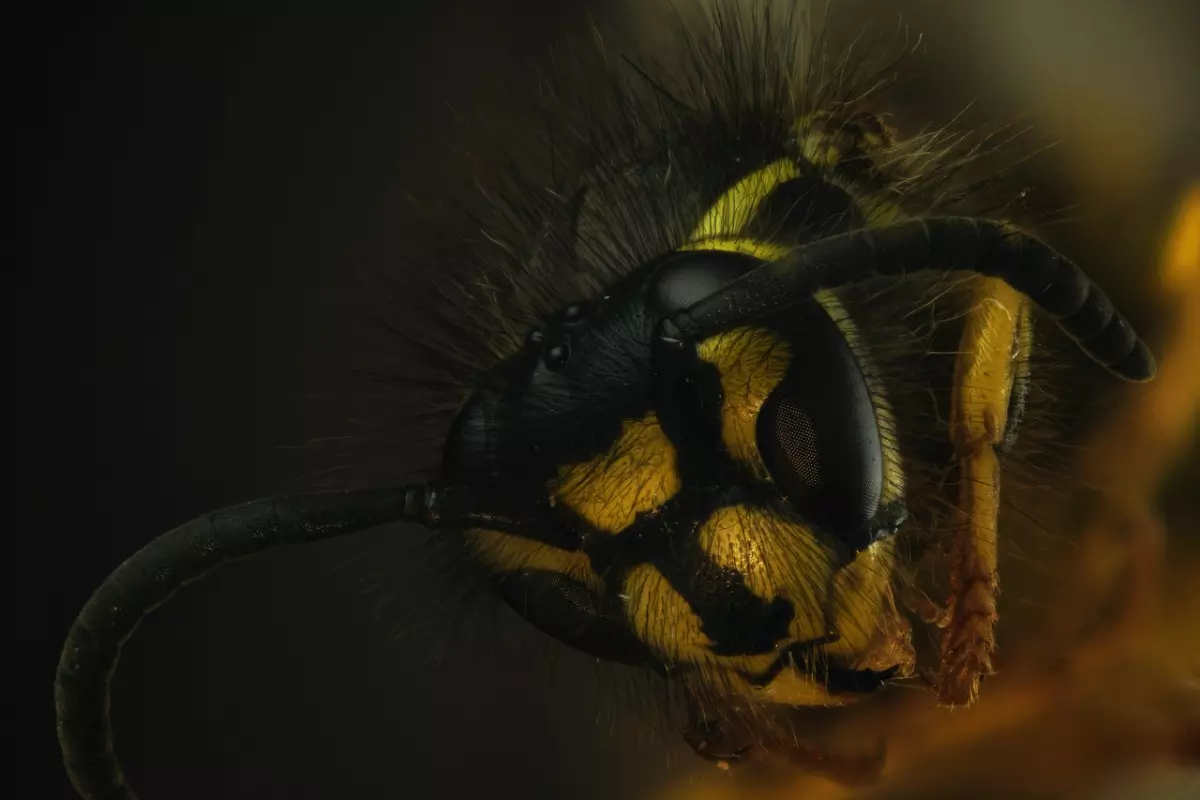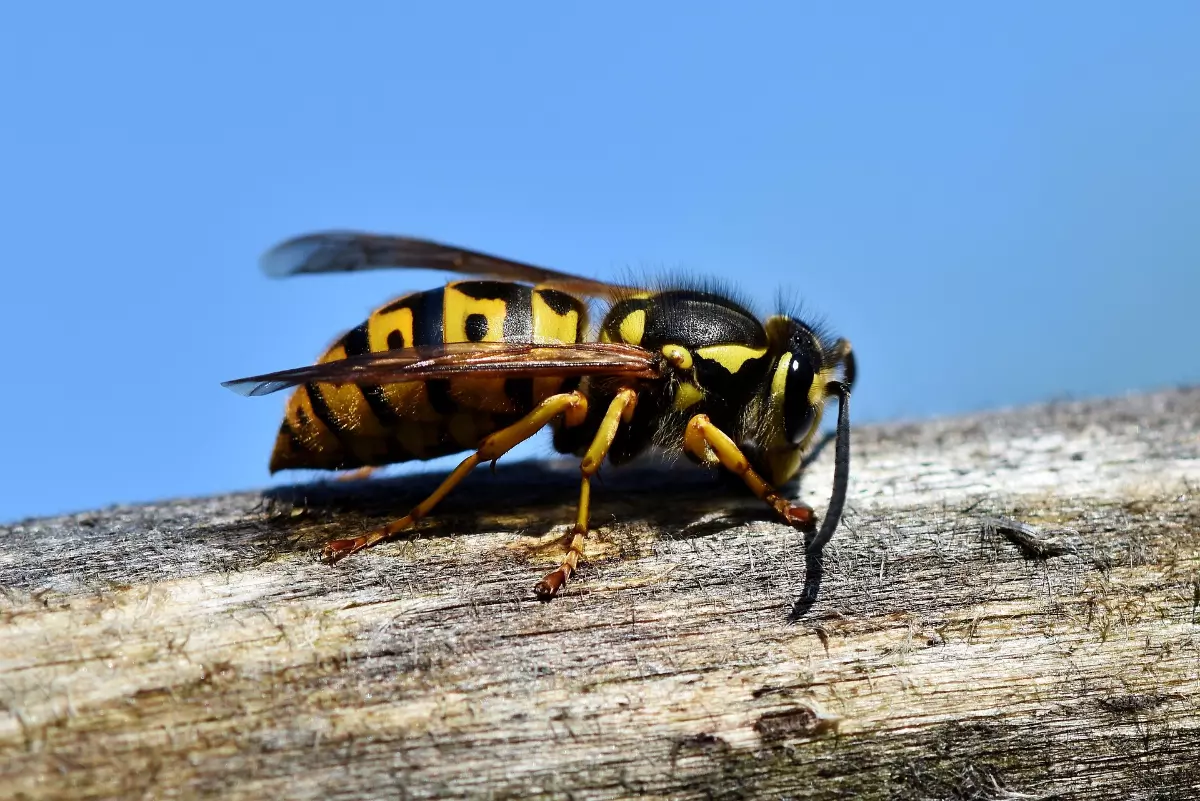How dangerous are wasps? If you experience a wasp nest on your property you may be concerned with the dangers that it could pose. Find out more.
How Dangerous Are Wasps?
At first glance, you might not think that a wasp or a couple of them are as dangerous as a big spider but make no mistake, wasps are dangerous in certain circumstances. This is because wasps are a type of eusocial species. This means they live in large groups and cooperate with other members of their group like a tightly-knit little society.
They are also aggressively territorial and will sting to ward off or kill potential threats to their nest. They also lack the distinct weakness of bees meaning they can sting multiple times without issue, and this makes them liberal with delivering those stings as they can sting multiple times. Furthermore, wasps on the hunt or defending the nest will often travel and attack in groups.
So you could think of it like this; if you have a wasp nest on your property, it's like having a small but hostile nation occupying your home. They will also respond to actions against them as you would expect, with great violence, and as such, it is advisable that you call for a professional before attempting to remove a wasp nest on your own.
Problems With Wasps
There are many different species of wasps, and each of them has its own unique characteristics. For example, there are yellowjackets, paper wasps and solitary wasps, hornets are also a type of wasp, and they take everything bad about wasps and jack it up to 11.
For the most part, however, there are a few problems that wasps present regardless of their species, as well as a few distinct types of wasp behaviour that are specific to the most common varieties of wasp that are good to know.

The main problem that wasps present for humans occur when they build their nest close to areas that we frequent. This could be your home, a park or anywhere that has a high amount of foot traffic.
Due to their territorial nature combined with their tendency to claim said territory wherever they please, they end up stinging people and animals that were otherwise minding their own business in an attempt to ward them off from their homes.
And make no mistake, a colony of wasps can set up a nest just about anywhere from a tree to your loft, even in the frames of windows and doors.
The nest itself is made of chewed up wood chips and wasps saliva. The resulting material is an elaborate construction of a thin paper-like substance. Their small bodies make it easy for them to build the nest in areas hard to access for a human, which can make the removal of said nests particularly difficult.
Another problem that wasps present is when people encounter them while they are out looking for food. Naturally, humans are not something that wasps would consider a viable food source, no matter how aggressive they are. What they will do, however, is sting people to get them away from food they want, even if that food happens to be your lovely picnic spread. This sort of behaviour is particularly prevalent in yellow jacket wasps.
Do Wasps Attack You For No Reason?
The common perception of wasps is that they are aggressive and mean little things that will sting for seemingly no reason. While it is true that a wasp is more likely to sting you than most other creatures in the animal kingdom, to say they do so for no reason or that they sting for fun would be misleading. The first and most obvious reason why a wasp would sting a person is if they stumbled too close to the nest. If a threat approaches a wasp nest, there are sentry wasps on the lookout that will spot it and attack it to dissuade it from coming any closer.
Wasps will also sting if they feel threatened. It is much like a fight or flight response.
If they feel trapped or feel like they can't get away from a predator, they will become incredibly aggressive and inflict as much damage as they can to force the predator to leave it alone.
Unfortunately for us, wasps are somewhat dumb, so their perception of what constitutes a threat can be difficult for us to understand. Things like sudden movement, for example, can feel threatening to a wasp and may cause it to sting you.

Finally, wasps are eusocial creatures, and like many eusocial animals and insects, they use pheromones to communicate things to each other, like where to find food and which areas to avoid due to threats. They also have an attack pheromone that will cause affected wasps to enter an agitated state where they are much more likely to sting.
This pheromone is also the reason why it is generally a bad idea to squash a wasp as they will release it upon death. These pheromones can be picked up by wasps over incredibly long distances, which means killing a wasp will likely call more wasps who will be agitated and looking for a threat to the nest.
Can A Wasp Kill You?
When people imagine wasps, one of the images that might come to mind is of a whole swarm of angry stinging insects assaulting someone. That is an image we have seen in various media involving wasps, after all, and it's even somewhat true.
If a whole nest of wasps was motivated enough, they could absolutely kill an adult human. I don't know what you would have to do to provoke that sort of response beyond literally sticking your head into a wasps nest and squishing their queen. The reality is that while death by wasps is possible, it is an extremely rare occurrence that usually involves extenuating circumstances.
The actual number of stings that it would take to reliably kill a healthy adult human is estimated to be over 1000, depending on the wasp species. For a swarm of wasps to sting you that many times, forget being aggressive, they would have to be positively murderous, and that is a trait usually left to more intelligent animals.
Luckily this type of allergic reaction is also rare, and so long as the individual knows they are allergic and the proper steps are taken after being stung, they should be ok.
Are Wasps In House Dangerous?
It's bad enough having to deal with wasps outside; the last thing you want is for them to set up shop in your own home for several reasons. First and foremost, wasp stings are incredibly painful and can be dangerous if you or anyone in your household is allergic to them. Also, small children and animals are at home are at far more risk than an adult. Therefore, for your and your family's peace of mind, it's best if you call pest control services to deal with the wasps as soon as possible.

Another concern you may have is what effect the wasps will have on the property itself. They build their nest out of wood chips, after all, so it wouldn't be a stretch to assume they pose a potential for property damage.
The good news is that a wasp nest is unlikely to cause any significant damage to your home in the short term. As a matter of fact, spotting them early if they make a nest in your roof, for example, is a sign that your roof was already damaged as wasps don't make entrances to places like that to build a nest.
It's more likely that your roof, in that case, was already damaged, and they simply exploited the opening.
It is still necessary to get rid of the wasp's nest as soon as possible because if left there, it can damage the surrounding wood by contributing to the build-up of damp.
What Happens If You Kill A Wasp?
Killing a wasp is almost always a bad idea. Where there is one wasp, there are likely more nearby, and the pheromones released by killing one will attract the rest, and they will be in a particularly bad mood when they arrive.
Instead of killing one, it is instead better to either avoid it or, if that's not possible, repel it. There are a variety of commercial wasp repellents that you can find at your local store that should do the trick.
Are you experiencing a pest infestation in the Stevenage or surrounding Hertfordshire areas?
If you are worried that your home or the exterior of your home has a bug or pest problem or infestation we can help.

